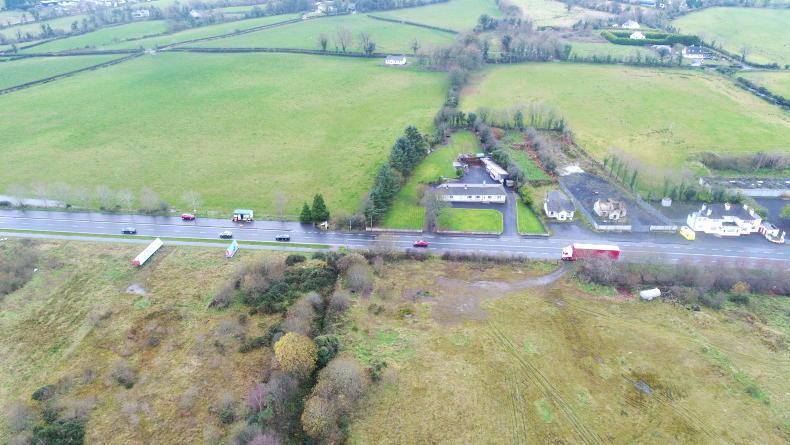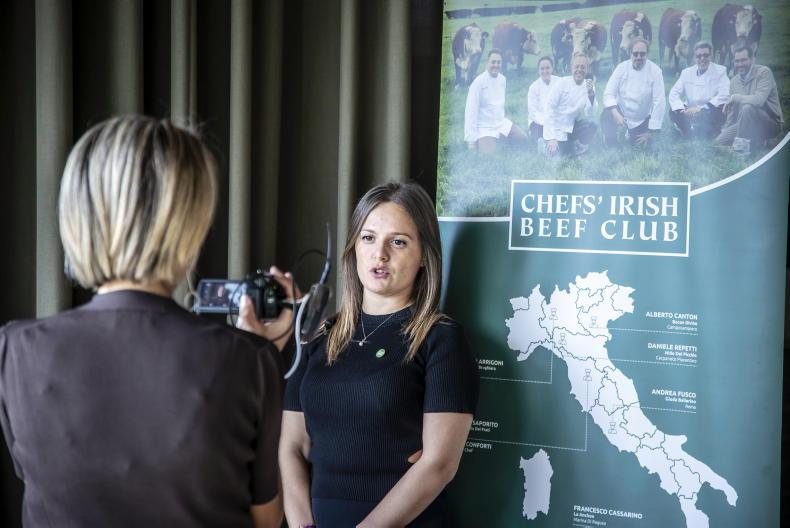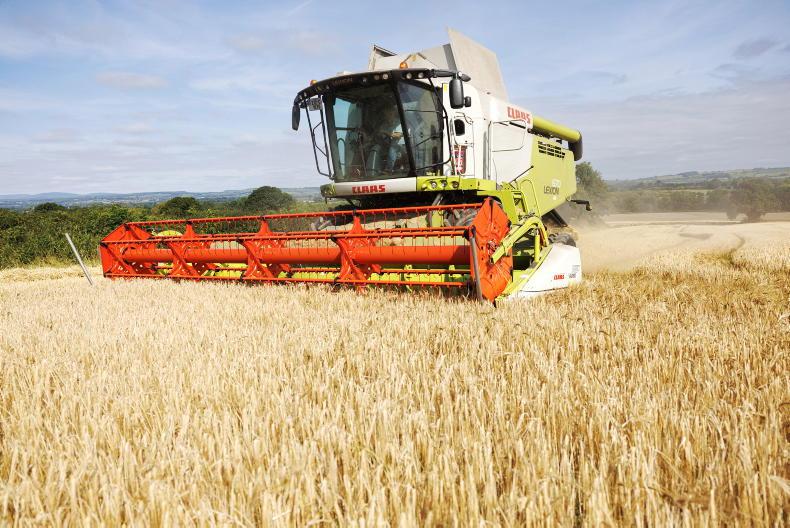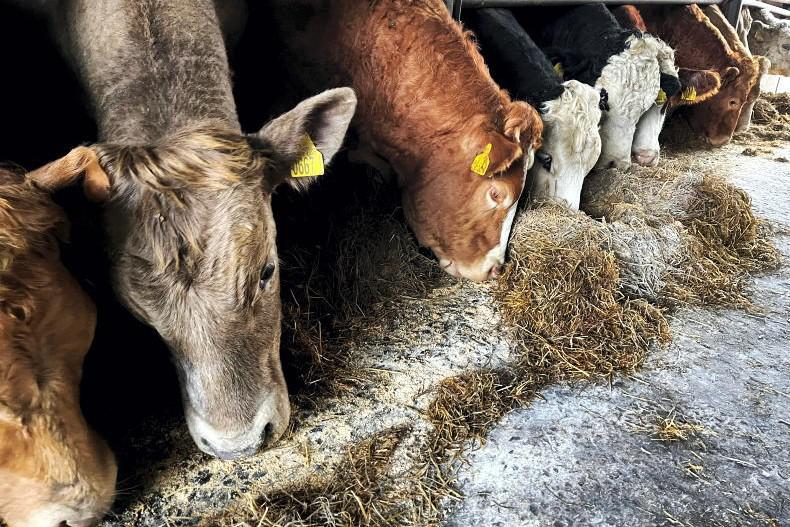When Minister for Agriculture Charlie McConalogue secured sign-off on a PGI application at last month’s beef taskforce meeting, it was thought that a formula had been found to resolve how Irish grass-fed beef should be defined. There had been rumblings of discontent in Northern Ireland (NI) about being outside the loop with the classification but following engagement between the ministers in Belfast and Dublin, it had appeared a way had been found to accommodate the NI interest.
NI position
That was shattered last week when the Livestock and Meat Commission (LMC), the industry levy organisation in the North, the Ulster Farmers’ Union and the NI Meat Exporters Association released a joint statement demanding that a PGI application for Irish grass-fed beef “must include the geographic area of (NI) from the outset”.
This was reinforced by UFU president Victor Chestnutt’s contribution which said “submitting an all-Ireland application is the only logical way to move forward with the process and we were very disappointed that the Department and Bord Bia continued to draft the submission without our involvement”.
He went on to add that NI wanted to be involved from the “get go” and that “the last thing we want is to have to object to the Republic of Ireland’s application.”
Preparing the application
The application has been put together by Bord Bia following extensive and exhausting consultation with farmer representatives and industry south of the border, which was concluded at the October beef taskforce meeting.
Parallel to this, the NI Agriculture Minister Edwin Poots had been in contact with Minister McConalogue requesting that the geographical area for the application be extended to include the island of Ireland.
This has been declined with an offer being made by Minister McConalogue to support the extension of the PGI to an all-island basis when a grass-fed verification system has been put in place in NI.
This isn’t currently in place in NI though the LMC has been in discussions with Bord Bia about having it established in a way that would meet the required standard.
What is the problem?
Looking at this from a distance it seems like simply a question of timing, but the fear in NI is that an amendment to have the geographical area extended to include NI may never happen. This is because under the legislation, EU Regulation 1151/2012, this wouldn’t be defined as a minor amendment, and would require effectively a complete new application process to extend the geographical area.
the Irish Government is ready to press the application button now
Northern Irish beef has always used a dual identity – British in the UK, the main market and Irish elsewhere. This has kept NI buyers active in southern marts for store cattle and this trade increased this year with the arrival of online bidding, and huge quantities of carcase beef also comes north for processing.
The other side of the argument is that the Irish Government is ready to press the application button now, giving a commitment to extending coverage to include NI when the standard has been put in place.
What happens now?
One of three things is likely to happen:
An Irish application proceeds as planned with NI accepting the assurance that it will be included later.Irish application is adjusted to include NI in the geographical area.Irish application proceeds as it is and is opposed by NI as suggested by the UFU.This course of action would be unfortunate and divisive but is provided for in Article 51 of the legislation and applies to third countries, as well as member states outside the country applying.
Comment: Been here before
This isn’t the first time there has been an issue with pursuing a PGI application for Irish beef. An application was made in 2008 by Northern Ireland with a parallel application process being undertaken in the Republic of Ireland.
Despite considerable crossborder debate and discussion, it didn’t prove possible to get consensus on a joint application, leading to both being withdrawn in 2010.
The opportunity to secure PGI was lost and it would be particularly unfortunate if a decade of north–south consensus couldn’t be built on to maximise the chance of success in Brussels. Ultimately, farmers – particularly in the Republic of Ireland – are the stakeholder group that depend most on a successful PGI application and building a brand.
It shouldn’t be beyond the ability of both jurisdictions on the island of Ireland to find a way of making it happen.
When Minister for Agriculture Charlie McConalogue secured sign-off on a PGI application at last month’s beef taskforce meeting, it was thought that a formula had been found to resolve how Irish grass-fed beef should be defined. There had been rumblings of discontent in Northern Ireland (NI) about being outside the loop with the classification but following engagement between the ministers in Belfast and Dublin, it had appeared a way had been found to accommodate the NI interest.
NI position
That was shattered last week when the Livestock and Meat Commission (LMC), the industry levy organisation in the North, the Ulster Farmers’ Union and the NI Meat Exporters Association released a joint statement demanding that a PGI application for Irish grass-fed beef “must include the geographic area of (NI) from the outset”.
This was reinforced by UFU president Victor Chestnutt’s contribution which said “submitting an all-Ireland application is the only logical way to move forward with the process and we were very disappointed that the Department and Bord Bia continued to draft the submission without our involvement”.
He went on to add that NI wanted to be involved from the “get go” and that “the last thing we want is to have to object to the Republic of Ireland’s application.”
Preparing the application
The application has been put together by Bord Bia following extensive and exhausting consultation with farmer representatives and industry south of the border, which was concluded at the October beef taskforce meeting.
Parallel to this, the NI Agriculture Minister Edwin Poots had been in contact with Minister McConalogue requesting that the geographical area for the application be extended to include the island of Ireland.
This has been declined with an offer being made by Minister McConalogue to support the extension of the PGI to an all-island basis when a grass-fed verification system has been put in place in NI.
This isn’t currently in place in NI though the LMC has been in discussions with Bord Bia about having it established in a way that would meet the required standard.
What is the problem?
Looking at this from a distance it seems like simply a question of timing, but the fear in NI is that an amendment to have the geographical area extended to include NI may never happen. This is because under the legislation, EU Regulation 1151/2012, this wouldn’t be defined as a minor amendment, and would require effectively a complete new application process to extend the geographical area.
the Irish Government is ready to press the application button now
Northern Irish beef has always used a dual identity – British in the UK, the main market and Irish elsewhere. This has kept NI buyers active in southern marts for store cattle and this trade increased this year with the arrival of online bidding, and huge quantities of carcase beef also comes north for processing.
The other side of the argument is that the Irish Government is ready to press the application button now, giving a commitment to extending coverage to include NI when the standard has been put in place.
What happens now?
One of three things is likely to happen:
An Irish application proceeds as planned with NI accepting the assurance that it will be included later.Irish application is adjusted to include NI in the geographical area.Irish application proceeds as it is and is opposed by NI as suggested by the UFU.This course of action would be unfortunate and divisive but is provided for in Article 51 of the legislation and applies to third countries, as well as member states outside the country applying.
Comment: Been here before
This isn’t the first time there has been an issue with pursuing a PGI application for Irish beef. An application was made in 2008 by Northern Ireland with a parallel application process being undertaken in the Republic of Ireland.
Despite considerable crossborder debate and discussion, it didn’t prove possible to get consensus on a joint application, leading to both being withdrawn in 2010.
The opportunity to secure PGI was lost and it would be particularly unfortunate if a decade of north–south consensus couldn’t be built on to maximise the chance of success in Brussels. Ultimately, farmers – particularly in the Republic of Ireland – are the stakeholder group that depend most on a successful PGI application and building a brand.
It shouldn’t be beyond the ability of both jurisdictions on the island of Ireland to find a way of making it happen.









SHARING OPTIONS